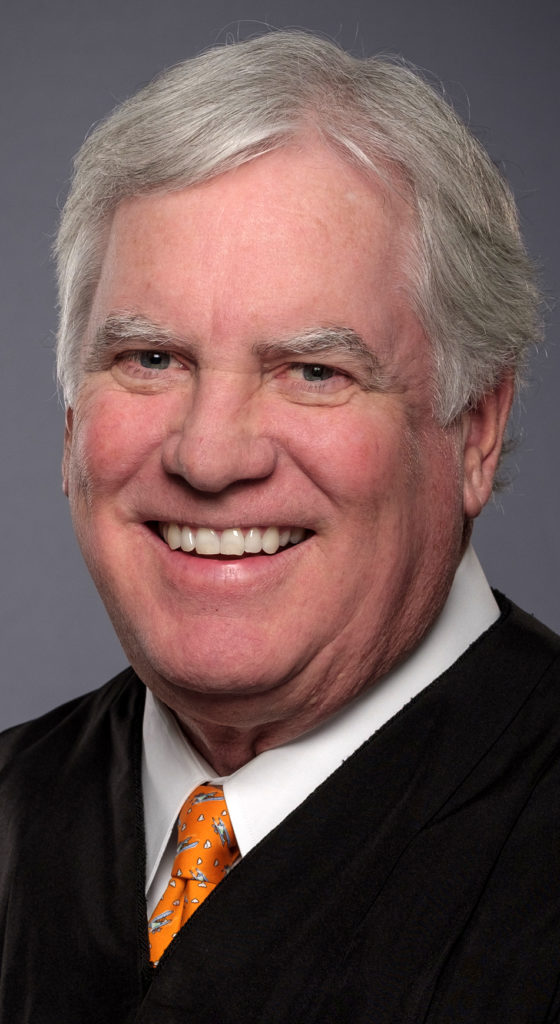Texas Supreme Court Justice Paul W. Green, the justice second in seniority on the state’s highest civil appellate court, announced his retirement Tuesday, nearly 2 ½ years before his elective term was to end.
“I’m 68, and it just seemed like the right time,” the San Antonio native said in an interview with The Texas Lawbook. “My youngest son is a senior in high school. This will give me a chance to spend more time with him.”

Green, elected to the Supreme Court in 2004, said he will probably establish a small practice in San Antonio focusing on arbitration and mediation. Asked if his many years as a jurist would make him an attractive choice in arbitration and mediation cases, he chuckled and said, “Well, I hope so.”
His term was to run through 2022, but his retirement will take effect next month. Gov. Greg Abbott, a Republican – and himself a former member of the court – will appoint Green’s successor.
All nine members of the state Supreme Court are Republicans.
Only Chief Justice Nathan Hecht, first elected in 1988, has served longer on the Texas Supreme Court – and, as Green noted, Hecht is the longest-serving Supreme Court justice in Texas history.
Hecht said Tuesday of his retiring colleague: “He has consistently provided steady, insightful and wise counsel… To say he will be missed is an understatement.”
Green earned a business degree from the University of Texas at Austin in 1974 and his law degree from St. Mary’s University School of Law in 1977. Before his election to the Texas Supreme Court, he served for 10 years as a justice on the Fourth Court of Appeals in San Antonio.
He is a former president of the San Antonio Bar Association, a former director of the State Bar of Texas, and a former member of the House of Delegates of the American Bar Association.
He is a member of the American Law Institute and the American Judicature Society and a life fellow of the Austin, San Antonio, Texas and American bar foundations.
“Justice Green has shown his dedication to preserving and educating the public about the Texas Supreme Court’s history through his long-time service as the Court’s liaison to the Texas Supreme Court Historical Society,” said Bracewell partner Warren Harris. “He was the first Justice to ever serve in that capacity.”
A third-generation lawyer, he began his career working in his father’s mid-sized litigation practice in San Antonio. He remained there for 17 years.
“A lot of lawyers might have trouble working with their dads, but I absolutely loved it,” he said. Through his father, he said, he got to meet many giants of the South Texas bar, including Charles Barrow and Jack Pope, both of whom went on to serve on the state Supreme Court.
Among the decisions he is proudest of having authored, he said, is Rohrmoos Venture v. UTSW DVA Healthcare LLP, a 2019 opinion characterized by one legal scholar as a “treatise on attorneys’ fees in Texas.” Green’s 56-page opinion required that a claimant seeking attorneys’ fees from an opposing party prove that the requested fees are both reasonable and necessary.
“Before that,” Green said, “attorneys’ fees were pretty much whatever an attorney said they were. Rohrmoos may not be well-known to people outside the legal profession, but that decision really brought some much-needed order and logic to the whole question of what constitutes a reasonable claim for fees.”
